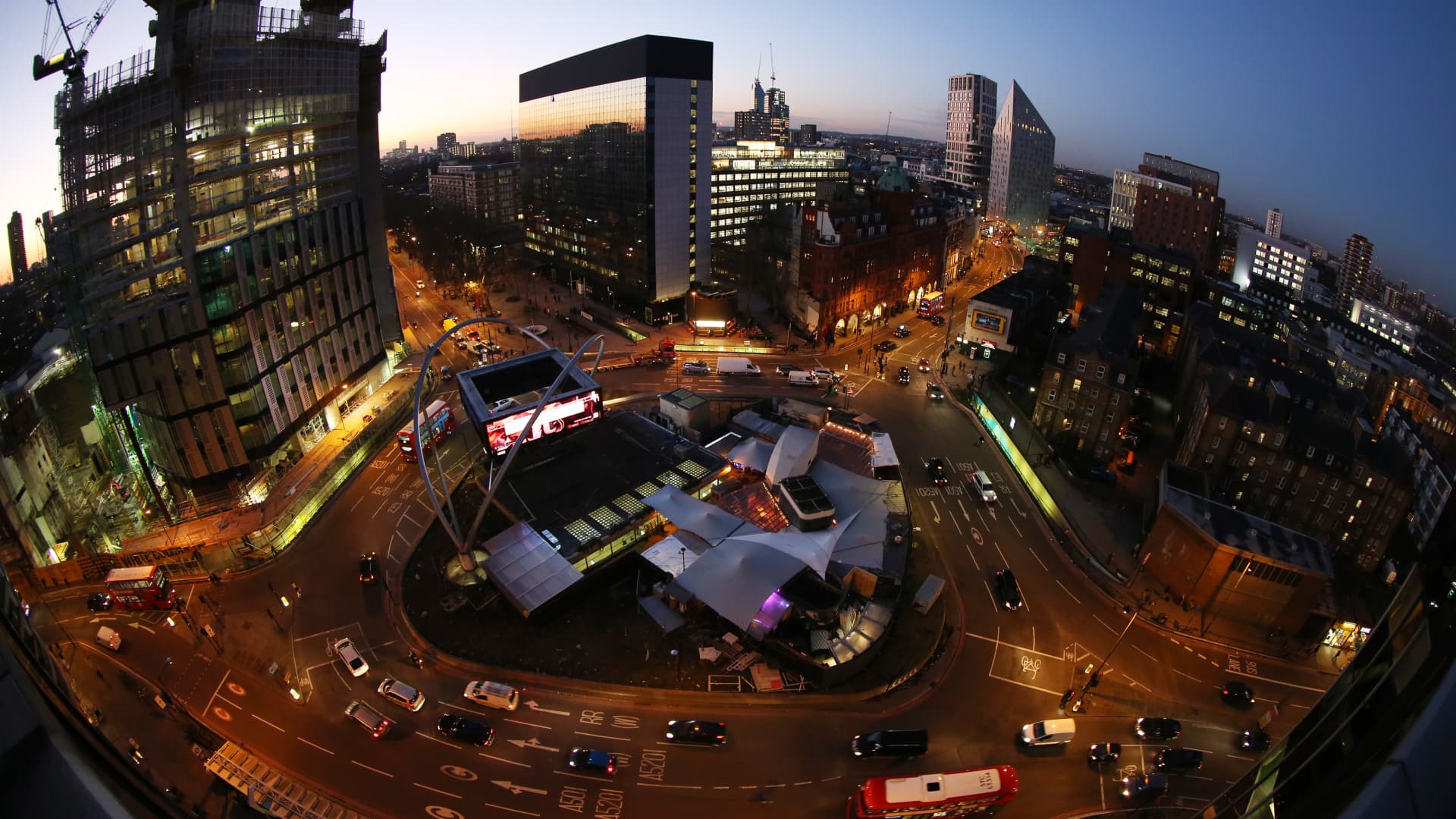
- The Silicon Valley tech giant announced on Monday that it has decided "not to reopen" Campus in East London after it was forced to close by the coronavirus pandemic.
- Campus London was opened in 2012 by Israeli tech veteran and Google employee Eze Vidra as London's start-up scene began to take off.
- Located in the gentrified Shoreditch neighborhood — a few hundred meters from the Old Street gyratory system that became known as "Silicon Roundabout" — Campus was often thought of as being at the epicenter of London's Tech City,
LONDON — Google is closing its dedicated start-up space in London known as Campus.
The Silicon Valley tech giant announced on Monday that it has decided "not to reopen" Campus in East London after it was forced to close by the coronavirus pandemic.
"We're closing Campus to support start-ups throughout the U.K.," the company said, claiming that it can provide support for start-ups across the country without a physical space.
Get top local stories in DFW delivered to you every morning. >Sign up for NBC DFW's News Headlines newsletter.
Campus London, one of several Campus sites worldwide, was opened in 2012 by Israeli tech veteran and Google employee Eze Vidra as London's start-up scene began to take off.
Vidra told CNBC on Monday that the closing of Campus is emotional and bittersweet. "The sweet part is that it succeeded and the bitter part is that it's an end of an era," he said.
"I'm personally very happy to see how the U.K. start-up ecosystem has grown," said Vidra, adding that it feels a bit like Campus is "no longer needed as much" now that London's start-up scene is established.
Money Report
Located in the gentrified Shoreditch neighborhood — a few hundred meters from the Old Street gyratory system that became known as "Silicon Roundabout" — Campus was often thought of as being at the epicenter of London's Tech City, which some tech workers say may never be the same again.
Campus contained co-working space, a cafe, and an event space. It was used by a variety of accelerators and start-up programs including Seedcamp, Entrepreneur First, Code First Girls, and Silicon Drinkabout. There were thousands of events put on there over the years and Googlers used to come in and offer free mentoring to start-ups.
Campus operated at a loss since its inception, Vidra said, adding that it was never meant to be revenue generating. "It was quite a high investment," said Vidra, who is now a managing partner at Remagine Ventures.
Google said the U.K. start-up community "doesn't need access to a single shared physical space as much as it needs access to resources, mentors and programs available at scale, anywhere."
"When I first set foot in Campus London in 2012, it felt like magic," said Marta Krupinska, head of Google for Start-ups U.K., on Twitter. "It's played a pivotal role in making London such a successful start-up ecosystem and after almost 10 years, a new chapter opens. So much to celebrate, and still so much work to do."

Sarah Drinkwater, who ran Campus from 2014 to 2018, said in a blog on Monday: "It's right that Campus won't re-open after the Covid closure. Scenes change, and you have to play it as it lays."
Drinkwater, who worked on Google Maps before she joined Campus, said there are hundreds of coworking spaces in London and dozens and dozens of accelerators across the U.K. today.
"This one scrappy space on Bonhill Street provided the container for many different sub-communities to start or come together, and a way in for incredibly different profiles who wanted to find out what this 'tech' thing was," wrote Drinkwater.
"Repeatedly, I'd meet an uncertain early founder in the cafe trying to figure it out then bump into them, a year later, with a team and funding and a clear way forwards," said Drinkwater. "Sometimes, those companies flew; sometimes they didn't and a great hire was back on the market."
Tech entrepreneurs, developers and investors reminisced about their times at Campus on social media and in blog posts.
"So many great memories and good friends met there," wrote Amandine Flachs, the CEO and co-founder of Wild Meta AI, which aims to help video game developers create smarter and more human-like AIs with machine learning.
Hannah Blake, CEO and co-founder of podcast app Entale, told CNBC it's a "big loss" and that it was "the heart and soul of the London start-up scene."
Andrew Eland, who worked at Google for over 11 years, leading teams in Silicon Valley working on Google Maps among other projects, said Campus broadened the people in the London technology scene, and the type of problems they worked on.
"I think the idea with all the Campus sites was to help incubate early tech communities, and London is obviously well beyond that stage now," Eland told CNBC.
With thousands of start-ups, London is now one of the main tech hubs in Europe, but the city is yet to spawn a tech behemoth on anything like Google's scale.
"While we still haven't produced a Google or a Facebook, we did 100 unicorns (businesses valued at $1 billion or more)," said Vidra. "Many of them had their first public pitch or appearance on the Campus stage including TransferWise and Revolut."
Google operates other campuses in Madrid, Sao Paulo, Seoul, Tel Aviv, Tokyo and Warsaw.
A Google spokesperson told CNBC that all the other global campuses will reopen "when circumstances permit."






